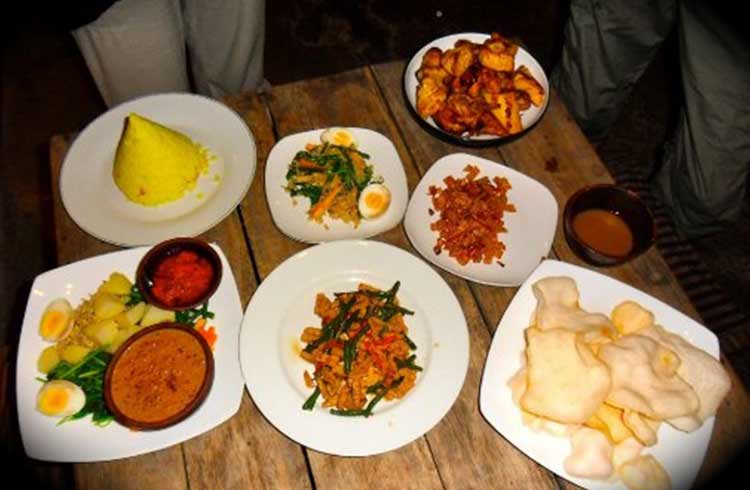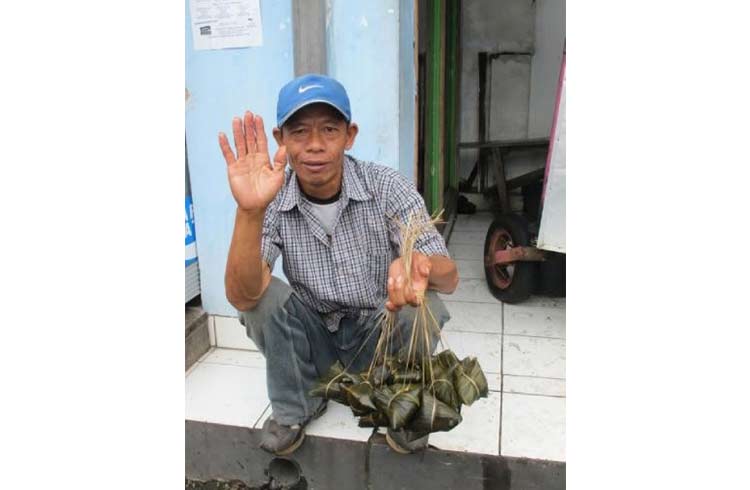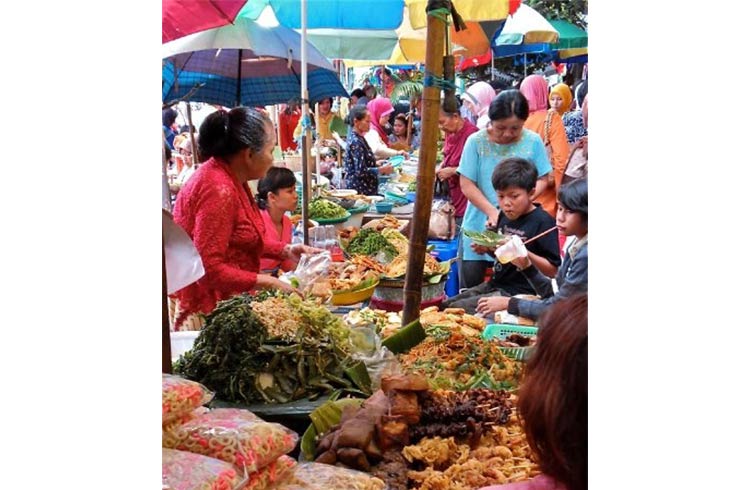5 Ways to Get Off the Beaten Path in Indonesia
Indonesia has long been the chosen destination for free-spirited travelers, and the sprawling collection of islands provide ample opportunity for adventures to places unknown.
Shares
 Photo © iStock/Zephyr18
Photo © iStock/Zephyr18
Here are a few starters for making the most of your travels, and getting off the beaten track in Indonesia.
- Explore further than Bali
- Eat where the locals eat
- Go back to school
- Get out of the city
- Make a home away from home
1. Explore further than Bali
The biggest mistake first-time travelers make when visiting
Sure, Bali provides a beautiful backdrop to a relaxing beach holiday, but with over 17,000 islands to choose from, there's so much more to explore in Indonesia.
Outside of the Hindu-majority of Bali, the rest of Indonesia is predominantly Muslim and home to a multitude of traditional cultures, and diverse landscapes; from soaring volcanic
Probably the most popular and easy to navigate island outside of Bali is Java, home to the country’s capital of Jakarta and the bustling hub of Yogyakarta.
It’s Java where travelers can peruse the stunning botanical gardens of Bogor, walk the
For those looking to explore a little further afield, try the dive spots and
2. Eat where the locals eat
Foreigners would be forgiven for thinking the only thing Indonesians eat is rice, and
Whether it’s sugary rice porridge for breakfast, sticky, sweet-soy-stained rice-balls for supper, or a steaming bowl of boiled, spiced basmati, there's no end to the creativity and diversity of this seemingly bland staple. You might be sick of rice by the end of your travels, but you certainly won’t run out of options.
Aside from the ubiquitous rice, Indonesian cuisine creates a blend of textures and flavors using abundant fresh spices and rich local palm sugar in abandon.
From
Keep an eye out for regional specialties like West Java’s
Warungs (street stalls) are where the locals head for most of their fare, and these range from a hand-wheeled cart serving up sliced fruit with crushed-peanut sauce, to roadside ‘restaurants’ where benches and eating areas are provided behind the cooking area.
For the full experience, be brave and order what everyone else is having – most places are famous for one or two things, so tuck into the accompanying sticky rice with your fingers (right hand only) and chug down a pint or two of the sweet green tea that comes free with every meal.

3. Go back to school
Learning about Indonesian culture gives travelers the opportunity to open their minds to traditional practices, and gain respect and understanding for Indonesian heritage – and these classes offer an authentic experience, free from the usual tourist frills.
There’s a range of classes for those interested in giving the local trades a try:
- You can learn the art of Batik – colorful artwork drawn with dye-resistant wax that the region is famous for.
- Discover Jamu – Indonesia’s long-running practice of traditional medicine.
- Learn how silver is made, and sculpt your own ring or pendant.
- Learn the basics of the local language with some Bahasa Indonesia classes.
- Ever popular are Via Via’s Indonesian cooking classes, where
local chef, Romdi, teaches the art of spice-blending and rice-simmering, cooking up a banquet of dishes selected by students in their atmospheric rooftop kitchen.
4. Get out of the city and into rural Indonesia
Far from the sprawling metropolis of Jakarta and motorbike-clogged highways, rural Indonesia offers up an endless horizon of tiered rice paddies, sloping tea plantations and charmingly chaotic street markets.
Take a rickety local bus that judders over the potholed roads, brush up on your Indonesian phrases, and prepare for the inevitable hold-ups as a herd of buffalo
Although hiring a bicycle or motorbike to explore the countryside can be a great way to get out of town and catch a glimpse of rural life, there are numerous tours throughout the country for those interested in something a little more educational.
Here are a few ideas:
- Take a coffee plantation tour at Losari Coffee Plantation.
- Head to the visitor-friendly Gunung Mas Tea Plantation in Puncak, West Java, where you can wander through a maze of shoulder height tea trees and explore the factory.
- Local brothers’ tour company, Jegeg Bali Cycling, offers a variety of cycling and walking tours around the rice paddies in Bali.
If you’re outside of the tourist areas, just ask around. There’s always some entrepreneurial local happy-chap waiting to show you around for a few bucks, and you might even get the chance to help out for a morning harvesting, or planting the rice.

5. Make a home away from home
There are numerous opportunities all over Southeast Asia for
There are English teaching jobs abound in big cities, like Jakarta, but these are typically limited to TEFL-qualified teachers who are willing to sign a 1-year contract.
For those lacking the skills to volunteer, a few opportunities are springing up for cultural immersion and homestay schemes run by locals.
The Lonely Planet-recommended Cianjur Adventure offers guests a homestay in rural West Java, with ample opportunity to experience the local lifestyle and explore the region’s attractions.
Or else the newer (and cheaper) Volunteer in Java offers a similar experience, but with the emphasis on voluntary English teaching at local schools and cultural exchange. Its team of Indonesian English teachers
For those interested in learning Bahasa, Alam Bahasa, language school in

About the Author
Zoë Smith is a British ESL teacher and writer currently based in Australia, but constantly hovering between South-east Asia and South America. Her published works can be found here. She was the winner of the World Nomads' 2011 Travel Writing Scholarship.
Related articles
Simple and flexible travel insurance
You can buy at home or while traveling, and claim online from anywhere in the world. With 150+ adventure activities covered and 24/7 emergency assistance.
Get a quote
No Comments